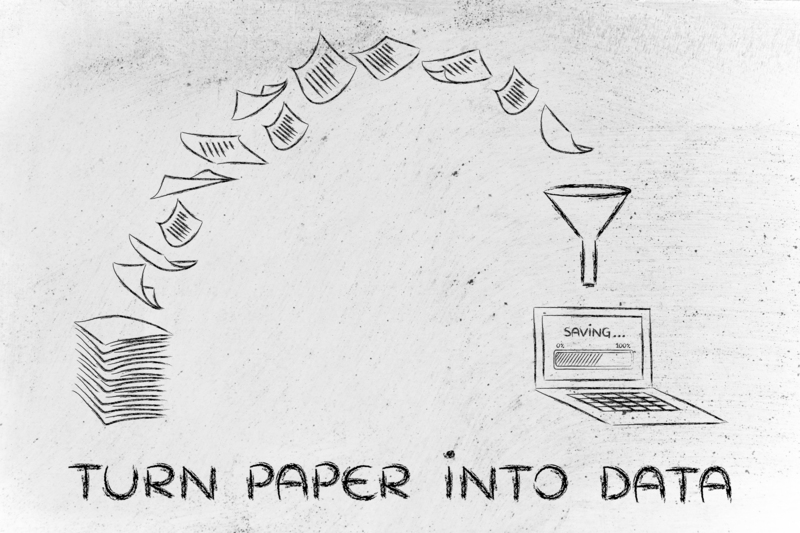Best Practices for Saving on Bulky Waste Services
Are you overwhelmed by the clutter of old furniture, broken appliances, or hefty yard waste? If so, understanding the best practices for saving on bulky waste services can transform your clean-up efforts without breaking the bank. By being strategic and informed, homeowners, landlords, and business owners can significantly reduce their disposal costs, contribute to sustainability, and make responsible choices. In this article, we'll discuss comprehensive methods and creative ideas to get rid of your bulky waste affordably, efficiently, and eco-consciously.

Understanding Bulky Waste and the Need for Efficient Services
Bulky waste includes items such as mattresses, sofas, large electronics, garden debris, and construction rubble--things too big to fit in standard garbage bins. Safe and economical disposal is often a challenge, leading many to seek cost-effective bulky waste services. There are a variety of solutions from municipal pick-ups to private junk removal companies, but how do you choose the most affordable bulky waste removal options?
Key Challenges in Bulky Waste Disposal
- Lack of knowledge about local disposal regulations
- High fees for one-time or large-volume removals
- Environmental considerations and landfill bans
- Limited frequency of municipal bulky waste collections
- Logistical difficulties transporting large items
Addressing these challenges starts with informed decision-making and practical strategies, each of which will help you unlock substantial savings on bulky waste removal services.
1. Audit Your Bulky Waste and Sort Smartly
Before booking the first available service, conduct a thorough audit of what you need to dispose of. Group items according to type--furniture, electronics, yard debris, etc. Why? Many bulky waste collection services charge based on volume, weight, or type. By sorting your waste, you may discover that certain items could be dealt with using free or alternative methods such as recycling centers, donation pick-ups, or creative reuse.
Best Audit and Sorting Practices:
- Separate out reusable or donatable items. Many charities will collect furniture and electronics for free.
- Identify hazardous items. Batteries, paints, or chemicals require special disposal--avoid fines by not including them in regular bulky waste.
- Disassemble large items to minimize size and save on volume-based charges.
2. Research Local Bulky Waste Regulations and Free Services
Municipalities often provide at least one free bulky waste collection per year, or maintain drop-off centers for residents. Check your city or county website for bulky waste service schedules, allowable items, and any free or low-cost programs. Taking advantage of these local offerings is one of the best ways to save money on bulky waste removal.
Tips for Leveraging Community Programs
- Schedule your clean-out just before community bulky waste collection days.
- Ask about residency requirements, ID verification, or item limits.
- Look for seasonal or special clean-up events, often held in spring or fall.
- Join local social media groups for neighborhood sharing or "freecycle" opportunities.
3. Compare Multiple Bulky Waste Collection Services
Don't settle for the first quote you receive. The bulky waste removal market is competitive, with both national brands and local haulers offering promotions or discounts. To ensure you get the best deal, compare prices and service terms from at least three providers.
How to Get the Best Price on Bulky Waste Removal
- Request detailed quotes, including fuel surcharges or labor fees.
- Ask about price matching or multi-item discounts.
- Look for special rates for seniors, veterans, or multi-family properties.
- Check online reviews to verify reliability and hidden fees.
4. Downsize and Donate: Give Bulky Items a Second Life
One of the smartest bulky waste saving strategies is to divert items away from landfill disposal. Charity organizations, thrift shops, and even local art schools may accept your old furniture, bikes, or building materials. Not only does this save you the cost of disposal, but it also supports your community and reduces waste.
Donation Ideas for Bulky Waste Items
- Large furniture: Goodwill, Salvation Army, Habitat for Humanity ReStores
- Appliances: Local repair shops may accept non-working units for parts
- Sporting equipment: Youth centers or local clubs
- Construction materials: Community centers, schools, or hobby groups
Some charities provide free pick-up for qualifying items, alleviating you from transport and handling costs.
5. Recycle Responsibly: Make Use of Specialized Facilities
A significant portion of bulk waste--such as mattresses, appliances, or electronics--can be recycled rather than landfilled. Many municipalities operate recycling events or permanent drop-off centers for recyclable bulky waste. Using these facilities can be cheaper (and greener) compared to hiring a waste collector.
What Can You Recycle and How?
- Scrap metal: Local scrap yards often pay for old appliances or metal bed frames.
- Electronics (e-waste): Check for state or city e-waste recycling days. Retailers like Best Buy or Staples may offer trade-in programs.
- Mattresses: Some states require mattress recycling programs, offering free or low-cost drop-off.
- Yard debris: Compost at home or take to local green waste facilities.
*Tip: Always call ahead to confirm accepted materials and operating hours to avoid wasted trips or fees.
6. DIY Disposal: Save with Self-Haul Options
For those with access to a truck or trailer, **self-hauling** bulky waste to the nearest landfill, transfer station, or recycling center can be the most budget-friendly option. Municipalities often charge less for direct drop-offs compared to curbside collections.
Best DIY Bulky Waste Disposal Practices
- Rent a pickup or borrow one from a friend for large loads.
- Disassemble items to maximize vehicle space.
- Be aware of site rules on mixed loads and hazardous materials.
- Take advantage of resident discounts or free drop-off days.
If you only have one or two bulky items, consider coordinating with a neighbor to split the transport (and disposal cost).
7. Pool Resources with Neighbors: Community Bulk Pick-Up Savings
Neighbourhood collaboration can be a game-changer! Many waste removal services charge by the truckload or offer volume pricing. By pooling your items with neighbors, you can maximize space and share the cost.
How To Organize a Neighborhood Bulky Waste Removal
- Pick a date and notify interested neighbors in advance.
- Contact providers for group pricing or multi-property discounts.
- Designate a central pick-up location for everyone's items.
- Share transportation for self-haul savings.
This approach is particularly effective for seasonal cleanouts or multi-unit properties.
8. Avoid Hidden Fees with Smart Preparation
One common pitfall in using bulky waste services is unexpected charges: extra labor for difficult access, overweight items, or last-minute bookings. Avoid these by ensuring proper preparation:
Smart Preparation Tips
- Place items curbside or in a designated area before collection day.
- Disassemble wherever possible to cut down on size and weight.
- Dispose of restricted items separately--check the hauler's prohibited list.
- Book services during standard business hours for the best rates.
- Photograph items to clarify size and quantity for accurate quotes.
9. Use Technology: Online Marketplaces and Apps
Modern solutions are just a click away. Apps and online platforms can connect you with affordable bulky waste removal, local recycling options, or even individuals in need of what you're disposing. Consider platforms such as Facebook Marketplace, OfferUp, Freecycle, or specialized waste removal apps like LoadUp or Junk King.
The Benefits of Using Technology
- Sell or donate items before considering disposal services.
- Instantly compare quotes from local haulers.
- Schedule and pay for services from your smartphone.
- Read reviews to choose the most reliable and economical provider.
10. Consider Subscription or Annual Bulk Waste Plans
If you regularly generate large waste--such as property managers, landlords, or contractors--look into annual contracts or subscription services for bulk waste removal. These plans often include bundled services, priority scheduling, and reduced per-pickup rates.
When Bulk Subscription Services Make Sense
- Apartment complexes with frequent move-outs
- Seniors or disabled individuals needing ongoing assistance
- Businesses with periodic refurbishment or excess packaging
- Homeowners who regularly clear out garages, yards, or attics

Frequently Asked Questions about Saving on Bulky Waste Collection
-
What items are generally accepted in bulky waste services?
Typically, bulk waste includes furniture, large appliances, mattresses, non-toxic construction debris, yard waste, and carpets. Check with your local provider for restricted materials. -
How do I avoid overpaying?
Always compare rates, use free community programs, disassemble items, and donate or sell salvageable goods before resorting to paid removal. -
Are there ways to get rid of bulky waste for free?
Yes. Use municipal pick-ups, recycling centers, or post giveaways on online marketplaces. -
Is it better to use private junk haulers?
Sometimes. Private haulers may be faster and more flexible, but often at a premium unless you negotiate group discounts or off-peak rates.
Conclusion: Optimize Your Savings on Bulky Waste Disposal
In summary, you can save on bulky waste services by investing time in research, leveraging free or community options, preparing items smartly, and considering all alternatives before paying for removal. Whether you're purging a cluttered garage or disposing of post-renovation debris, make sustainability and cost-effectiveness your guiding principles.
- Audit and sort your waste before choosing a service.
- Use free or subsidized municipal collection programs whenever possible.
- Donate or recycle usable items to reduce landfill impact and service fees.
- Compare quotes and negotiate for better rates with local haulers.
- Collaborate with neighbors for shared savings.
Smart planning, community collaboration, and resourcefulness are your best allies in saving money on bulky waste collection. Use these proven strategies to keep your home, wallet, and environment in top shape!